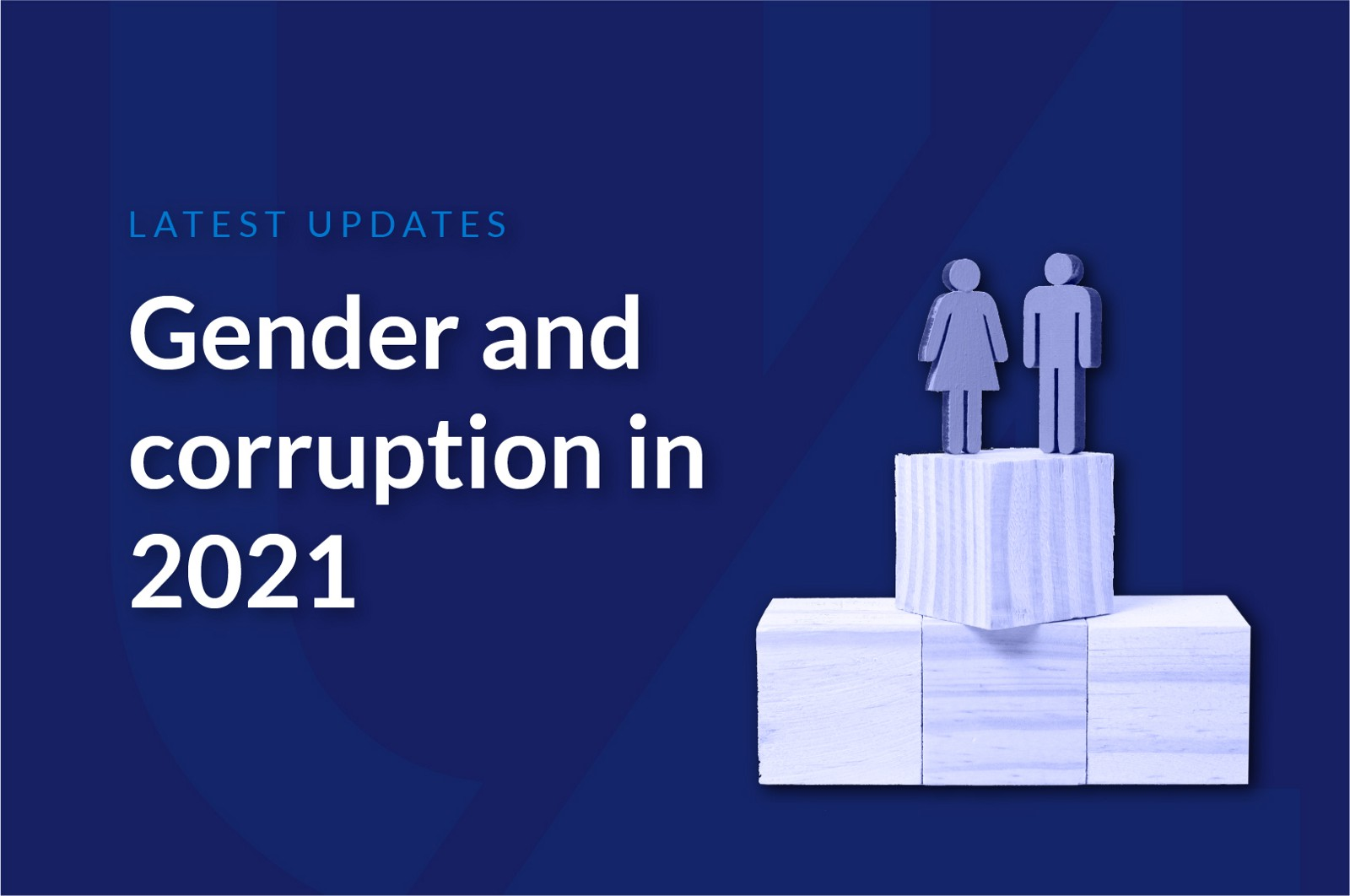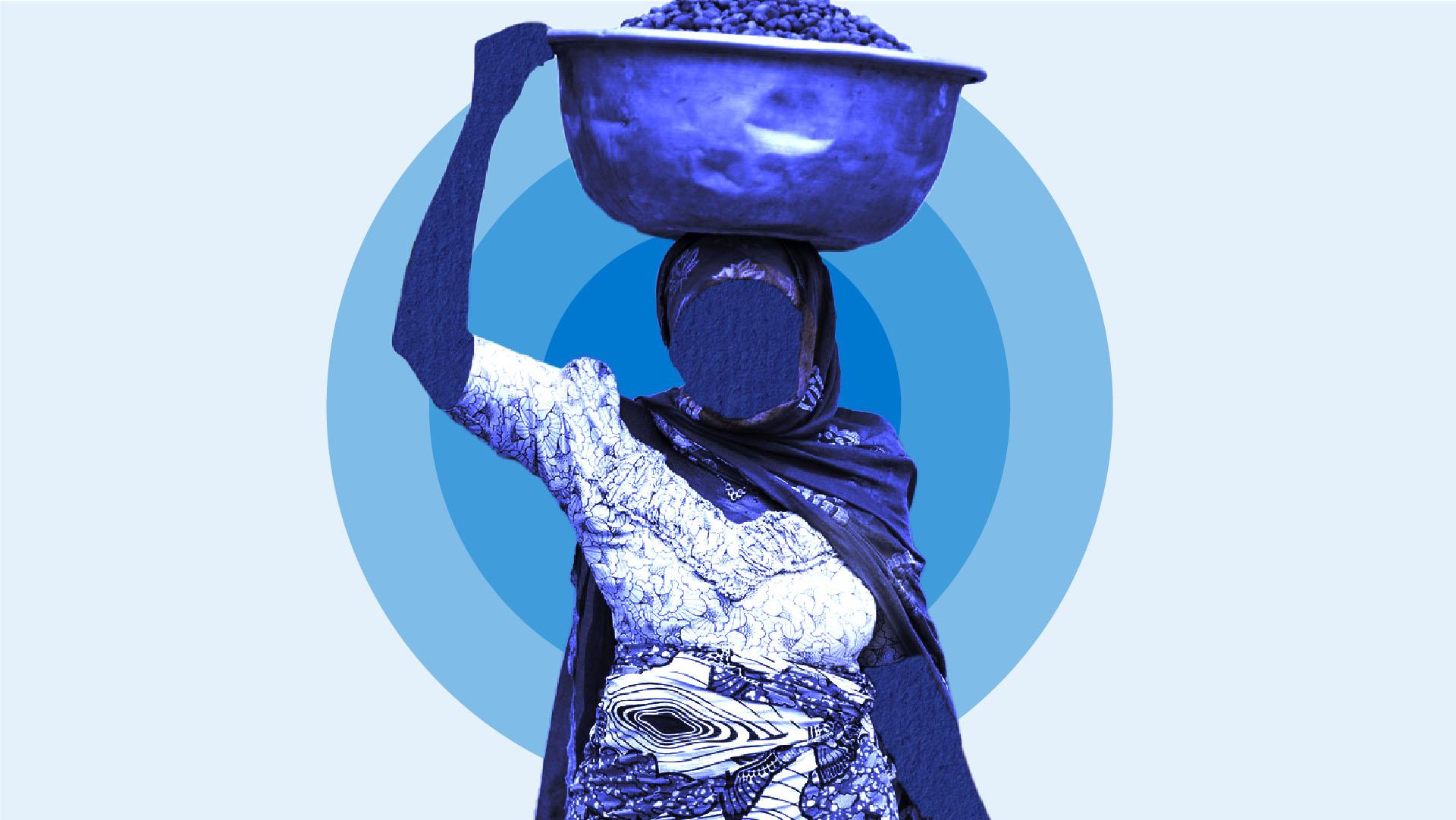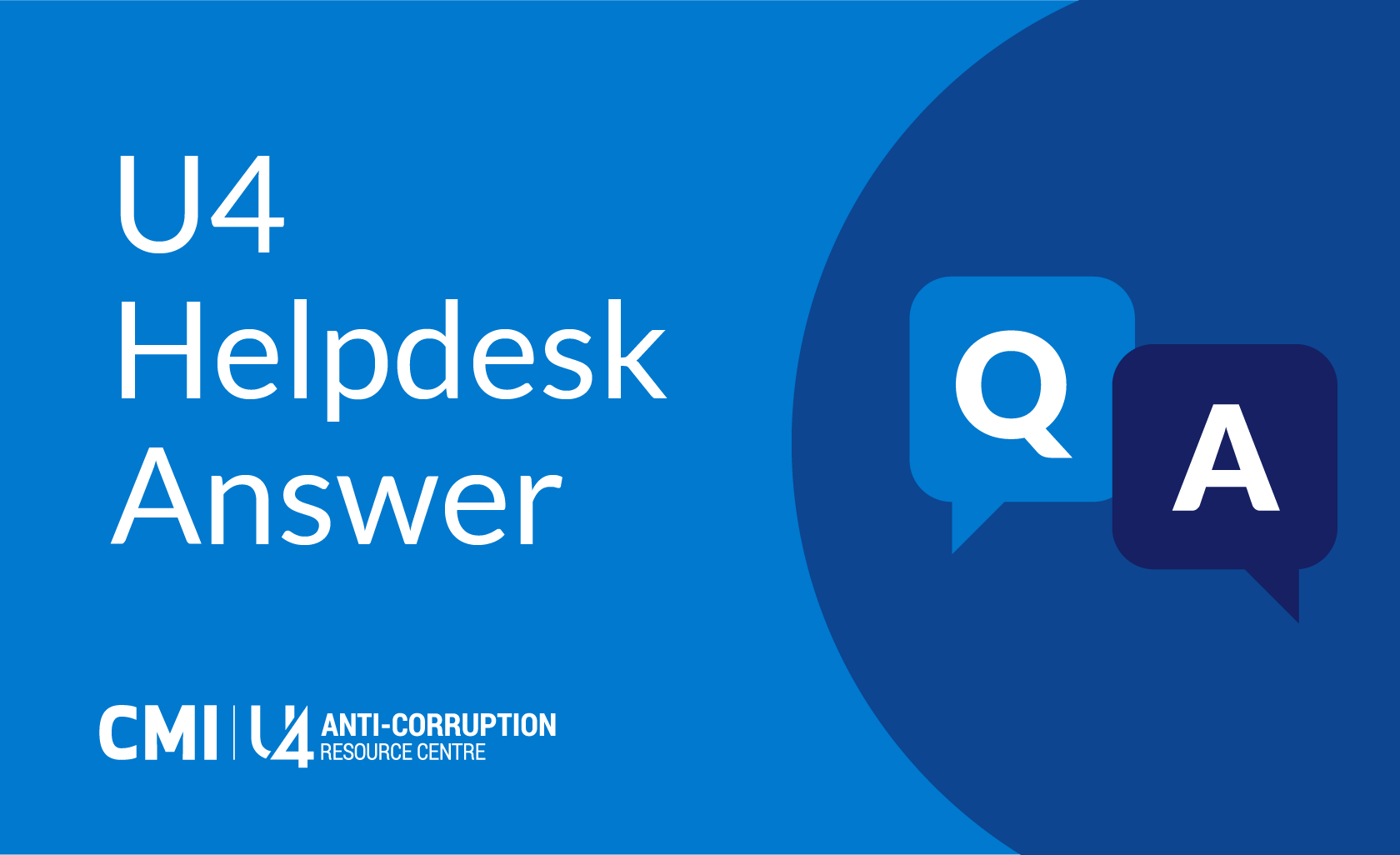Blog
Gender and corruption in 2021: March–April developments

This update is part of an ongoing series, where we recount what’s been happening with gender and corruption in 2021.
Addressing corruption in the education sector is crucial for achieving gender equality
The 65th session of the Commission on the Status of Women (CSW) took place on 15–26 March 2021. This year’s theme was ‘women’s full and effective participation and decision-making in public life, as well as the elimination of violence, for achieving gender equality and the empowerment of all women and girls’.
U4 took part in the session on Women and Corruption on Friday 19 March, where we discussed education sector corruption and its negative impact on girls’ education.
According to the United Nations, progress towards achieving SDG 4 (“ensure inclusive and equitable quality education and promote lifelong learning opportunities for all”) is too slow and over 200 million children, mostly girls, will still be out of school by 2030.
The Covid-19 pandemic has exacerbated existing inequalities, with 90% of children out of school in 2020 due to school closures. Corruption negatively affects education accessibility, quality, and learning outcomes, especially for girls.
Studies show that countries with higher levels of corruption also have higher school drop-out rates. Girls drop out of school at higher rates than boys, for complex reasons, some of which are rooted in corruption. Addressing corruption must therefore be prioritised to improve progress on SDG 4. A gender-aware approach that focuses on gendered forms of corruption and its gendered impact on education outcomes will ensure that no one is left behind.
Covid-related corruption is having a disproportionate impact on women
U4 was involved in the OECD Global Anti-Corruption & Integrity Forum in March – specifically, the session on the Impact of Corruption on Covid-19 Response and Recovery on 25 March. Even before the pandemic, women were already in a precarious position and generally worse off than men in almost every dimension of human security. Human security means freedom from fear, want and indignity. Ortrun Merkle’s PhD thesis has an interesting chapter on the gendered impact of corruption on human security. You can read it here.
With women already in a such a disadvantaged position on many dimensions of human security, when the pandemic broke out, it was inevitable that it would have a disproportionate impact on women due to these pre-existing structural inequalities. Since most of the world’s frontline health workers are women – 70% according to the WHO – they were directly affected by the large-scale procurement corruption that occurred in many countries and resulted in shortages of personal protective equipment (PPE), or in under-sized and ill-fitting PPE. According to a January 2021 update from the WHO, 8% of global Covid-19 cases, where occupation is known, have been health workers. Of these, 68% have been women.
Women are particularly prone to sexual exploitation during humanitarian crises. Such acts perpetrated by people in positions of public trust, such as government officials, NGO workers or staff of multilateral agencies, amount to sexual corruption or ‘sextortion’. During the 2019 Ebola epidemic in the Democratic Republic of the Congo, women were offered the Ebola vaccine in exchange for sex. They also faced demands for sex in return for jobs in the humanitarian response.
We don’t yet have information on how much sexual corruption has featured in the Covid response, but the story is still being written.
A gender perspective in Covid-19 response and recovery is therefore crucial to ensure that women’s needs and voices are taken into account. Yet, the UN says that most Covid-19 task forces have been dominated by men – only 24% of Covid task force members in 137 countries analysed were women.
The compliance industry is dominated by women
U4 also participated in an OECD Integrity Forum session on Gender Mainstreaming in the Anti-corruption Agencies of APEC Member Economies,which took place on 24 March 2021. There were fascinating discussions about the importance of a gender lens in the anti-corruption fight.
It was also noted that women are well represented in the anti-corruption agencies of APEC (Asia-Pacific Economic Cooperation) countries, but people within these agencies still experience gender bias. Similarly, the compliance industry is dominated by women, but we don’t have studies on the implications of this for corporate integrity or more inclusive corporate policies.
We do have one relevant, recent and interesting study that shows banks with more women on their boards commit less fraud, by Professor Barbara Casu from City University of London.
Gender and corruption in the news…
Rasnah Warrah questions whether the appointment and nomination of a woman as the United Nation’s Secretary-General would really bring significant reforms to the organisation, or its commitment to gender equality.
What’s going to happen to the state of Victoria’s (Australia) efforts to combat corruption? Several women in top positions have resigned from the Independent Broad-Based Anti-Corruption Commission amid claims of a culture of bullying and sexual harassment. Add to that the wider concerns about the underfunding of Australia’s integrity agencies and a high-profile bribery case against state officials, and we can see several issues for anti-corruption in the state.
Charges of rape against opposition leader Ousmane Sonko continue to cause controversy in Senegal. However, concerns over the issue are being overshadowed by frustrations with Macky Sal’s government – a stagnant economy and high youth unemployment among them – leading to nationwide protests. This situation is leading feminist thinkers to question the politicisation of violence against women in Senegal.
This story shows how women in India face sextortion, even in spaces that are meant to help them seek justice.
The Afghan government’s reluctance to investigate a recent spike in targeted killings and violence again female journalists is raising concerns about an effort to cover up corruption.
Filipino immigration officers are accused of corruption and trafficking of women to Syria.
The BBC has an interesting two-part radio-documentary series on Covid, Women and the US Economy.
Jane Goodall speaks about the importance of equality with TIME magazine’s senior editor Haley Sweetland during the “Voices of the Future” Women’s Summit.
Insightful research on gender, corruption and women’s participation in decision-making
Sarah Haakson’s new paper shows that Swedish female mayors pay an especially high personal price – and experience psychological gender-based violence – for holding positions of power and being visible. As news of discrimination and violence keeps flooding our news feeds, it is worth remembering that corruption and discrimination are inextricably linked. Corruption exacerbates the political and socioeconomic discrimination experienced by under-represented and marginalised groups.
Peterman, Schwab, Roy, Hidrobo, and Gilligan have a paper showing that changes in question construction affect the inferences about women’s role in decision-making, and the effect of transfer programmes on decision-making in Ecuador, Uganda, and Yemen.
Jayachandran, Biradavolu, and Cooper have combined machine learning with qualitative semi-structured interviews to create a five-question measure of women’s agency in northern India.
A new study by the Nippon Foundation Ocean Nexus Center at the University of Washington finds that socioeconomic and governance conditions, including corruption, affect different regions’ ability to achieve a Blue Economy – socially equitable, environmentally sustainable and economically viable ocean industries.
Disclaimer
All views in this text are the author(s)’, and may differ from the U4 partner agencies’ policies.
This work is licenced under a Creative Commons Attribution-NonCommercial-NoDerivatives 4.0 International licence (CC BY-NC-ND 4.0)


